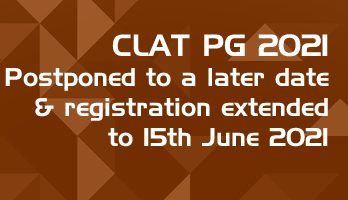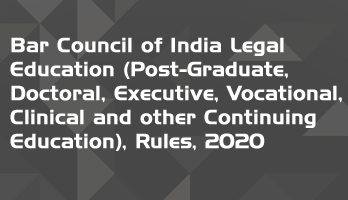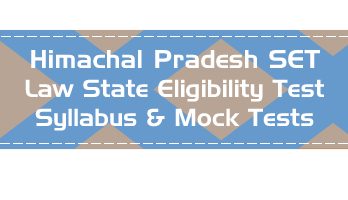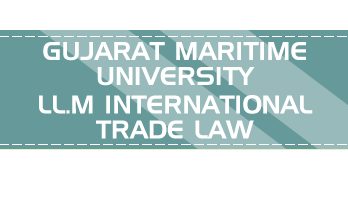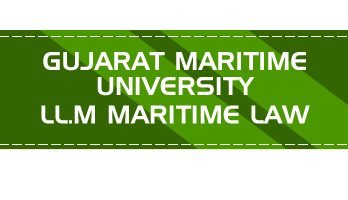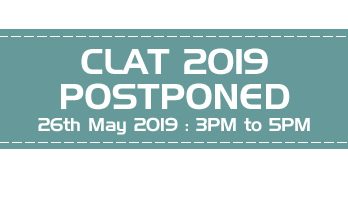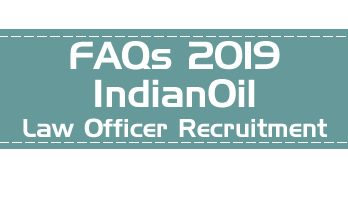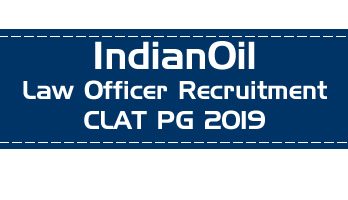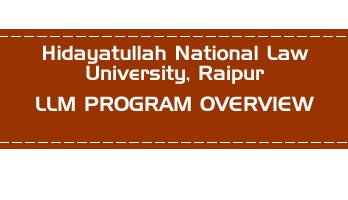Q : Which is the best college for an LLM in India?
Ans :
Thanks for the A2A . . . Would you believe me if I said that the best Institute for an LLM in India *may be* any University that offers a distance LLM ?
Why ?
Let me explain . . .
Normally, we pursue any qualification or certification with a particular intent and the definition of ‘Best’ is subjective; depending on how the qualification or the institute fits into our bigger picture.
Examples:
(1) If a person is practicing law and the intent is to just get an LLM for the sake of adding an additional degree after his / her name; a distance LLM would be the ‘Best’ – Considering that it would allow the person to continue earning and building his practice while completing the degree.
The clients would probably never even bother to ask where the person completed his LLM from, what were his grades etc. They are just happy with the number of degrees after the name.
(2) If the intent is to pursue a Corporate career, then the pedigree of the Institute is important and so are placements – then an LLM from one of the Top 5 law schools in India would be the ‘Best’.
Just look at the Law School rankings published by various magazines / news-papers etc. and cull-out the ‘Best’ five from these rankings; using placements as the criteria.
(While NLSIU will feature on the top of most rankings, the positions of the other institutes will vary quite a lot depending on what parameters are being considered and which institutes actually participated)
(3) If the intent is to specialize in a specific / niche area of law – then the ‘Best’ college will be the one which offers that particular specialization.
For Corporate and Commercial Law – NALSAR may be the best, for Criminal Law – NLIU may be the best, for Business Law – NLSIU may be the best. (These specializations are just random examples, not based on any data)
If the intention is to learn, just about any college that has a good syllabus, decent Professors and affordable fees would be the ‘Best’.
So how to choose your college or course ?
Decide on the college for your LLM considering the bigger picture and what is the purpose of the degree in your context.
While a one year LLM may not require too much of a commitment in terms of time & money, a two or three year LLM deserves a little more thought before finalizing.
If your of definition of ‘Best’ is based on the published rankings, then just go with the top Institute in every ranking – which will usually be NLSIU.
And choosing a college based on rankings is also a very practical way of doing things . . . since it is the rankings that attracts most of the top students, the top faculty and the top recruiters.
Q : Is a candidate eligible for the UGC NET exam after the completion of Post Graduate Diploma in Management (PGDM) from IGNOU?
Ans :
This is based on my understanding of the situation…
[1] IGNOU is recognized by the UGC – It comes under the category of Central Universities.
[2] In the official notification, apart from the list of the Masters Degree courses specifically mentioned, there is an option number 35 – ‘Others’ – to be chosen if your PG degree is not mentioned.
So, as far as taking up the UGC NET is concerned – Yes you can.
But clearing the NET is just part of the process, it just certifies that your are conversant in the subject of your choice.
When you subsequently apply for an Assistant Professor role or for a JRF, will the PGDM from IGNOU be considered as equivalent to a Master’s Degree ?
As such, PGDM from several institutes is considered as equivalent to an MBA (Masters Degree) in terms of eligibility for pursuing PhD or an FPM (Fellow Program in Management)
(Only Universities can confer Master’s Degrees. Other Institutes can confer only a Post Graduate Diploma in Management)
This equivalence of PGDM to an MBA is to be certified by the AIU – Association of Indian Universities.
So, while you can apply for and clear the UGC NET, it is essential to reach out to the AIU and get the equivalence of the PGDM certified.
Thanks for the A2A.
Q : Do the pattern and syllabus of the Tallentex examination remain the same every year?
Ans :
Not really . . . though there shouldn’t be frequent changes . . .
The Tallentex is conducted for Class V to Class XI students by the Allen Institute of Kota.
The syllabus for the exam will be :
- Class V to X – Physics, Chemistry, Biology, Maths and IQ
- Class XI – Physics, Chemistry, Biology or Maths and IQ
Since the exam is open to all students from across the country, there has to be a ‘common-base’ between students from ICSE, CBSE or State syllabus.
If you look at the current syllabus details, the ‘common-base’ used seems to be the CBSE syllabus for each class.
So, the syllabus should mirror the current CBSE syllabus and change as and when there are any changes (which may not be too frequent.)
Since this is an MCQ based exam, the pattern changes will be mostly be increase or decrease in number of questions, time and changes in the marks / negative marks; which should not be too much of an issue.
This answer is based on my very limited knowledge of the Tallentex; would suggest that you should read-up on all the information available on their official website + Google a little bit for previous candidate’s experiences.
Also, you might also want to take a look entrance exams conducted by some of the reputed institutes in Andhra Pradesh, Telangana and Karnataka, which also groom students for competitive exams. If you can get hold of these question papers, they can serve as useful practice papers.
Thanks for the A2A.
Q : Which exam can a Master of Engineering qualified student take, CSIR NET or UGC NET? Which subject should one take if they are eligible for both exams?
Ans :
Look at it from the recruiter / selector’s point of view . . .
When you are applying for the UGC NET or the CSIR NET exams, you can take any subject of either of the exams or even both the exams.
That’s because both these exams don’t guarantee a job or a JRF. They are just certifications which attest to your proficiency in the chosen subject.
However in the next steps – either when you apply for an Assistant Professor role or for a JRF, the UGC or CSIR certification is just one criteria for selection.
Your core graduation and post graduation subjects will be the primary selection criteria and the UGC / CSIR certification will just be used as an additional criteria – and not in lieu of the primary criteria.
For example, I might be able to take up the UGC NET in either of the two areas that I am truly eligible for; but my choice would depend on which of the two areas will I be able to apply for as an Asst Professor. i.e. Where will I best meet all the other criteria.
So, how to choose ?
If you are eligible to take both the exams, you can take both; but I would suggest looking at the previous advertisements / selection criteria for the roles that you intend to pursue – are they asking for CSIR NET or UGC NET; and take the appropriate exam.
Though there may be a certain level of overlap, the CSIR NET covers pure sciences and the UGC NET mostly has the applied sciences subjects. So take a call based on what is your area of interest.
Q : Is there any exams to join in customs in India?
Ans :
Customs and GST comes under the Indian Revenue Service – IRS.
The IRS covers ‘Income tax’ roles and ‘Customs and GST’ roles. You can clear the Civil Services Exam and opt for IRS.
Or, join at a clerical level through one of the selection processes and get promoted internally to a officer cadre; but this will probably take a very very long time, with no guarantees.
Also, since IRS has both Income Tax and Customs & GST departments, I believe a candidate will have to put in some specific requests, with justification as to why he / she should be allotted into a specific cadre.
In any case, the best person(s) who can give you specific answers should be folks who are currently in / recently retired from the customs department. They will be more familiar with the departmental selections processes.
Thanks for the A2A.
Q : How do I get my UGC certificate of JRF NET June 2017?
Ans :
Go to the official URL . . .
Q : In which months will the UGC NET be conducted in ?
Ans :
I answered a similar question yesterday . . . and this is my personal view.
Recently, we were reviewing plenty of previous year UGC NET Law papers while working on the mock tests for our site.
UGC has traditionally followed a June and Dec cycle for most of the years, even from prior to 2004. i.e. The exam is held twice in a year – in June and in December.
There was a change in the pattern a couple of years, for example 2013 saw a re-exam in Sep. So there were three NET exams in 2013.
In 2016, the first exam was held in July (a delay of one month) and a re-exam happened in August; so the schedule was again interrupted.
The next exam, Dec 2016 exam, got pushed to Jan 2017.
In 2017, there was a long gap due to the Kerala High Court case on the reservation / pass percentage; and the next exam was held only in November 2017.
This year, since the first iteration is scheduled for July, the second one can happen in Dec or latest by Jan 2019.
Meanwhile, if the NTA (National Testing Agency) takes over the exam in 2019, the schedule may get changed to accommodate with the other exams that will be held by them – like the JEE and NEET.
Bottom line : The July NET is on track, the Dec / Jan NET is subject to any changes such as takeover by NET.
Q : In which month will the second UGC NET exam (for ) be conducted, if a second exam will be conducted in ?
Ans :
This is purely my personal view . . .
Recently, we were reviewing previous year UGC NET Law papers while working on the mock tests for our site. What I saw is that UGC has traditionally followed a June and Dec cycle for most of the years. i.e. The exam is held twice in a year, once in June and once in December.
However, there have been a few aberrations over the years due to various reasons; and when the schedule gets interrupted, it takes UGC a year or two to get back into the original June & December schedule.
For example, from 2004 till 2015, the June – Dec schedule was diligently maintained. Though there was a ‘re-exam’ conducted in 2013, which meant that 2013 had three NET exams – June, Sep & Dec.
In 2016, the first exam was held in July (a delay of one month) and a re-exam happened in August; so the schedule was interrupted.
Instead of the Dec exam, the next exam got pushed to Jan 2017.
Perhaps the June exam would have happened; but I believe the Kerala High Court case on the reservation / pass percentage issue led to the postponement of the June exam all the way into November 2017.
But this year, the NET exam is almost back on track with the July schedule.
So the next iteration of the exam should happen either in Dec or latest by Jan 2019.
And I almost forgot; with the talk about the NET exam being handed over to the ‘National Testing Agency’, the schedule of the 2019 exams may change. However, if the NTA starts off with the JEE and the NEET exams, they might have their hands full and decide to transition the NET exam to themselves after a while; so I would not be surprised if the Jan 2019 exam is till conducted by the CBSE.
Q : What is the criteria of the DU LLM entrance test?
Ans :
Basic Eligibility criteria for DU LLM Programs
•\tA three-year/five year LL.B. Degree from any Indian University or from a Foreign University recognized as equivalent by the University of Delhi
•\t50% marks or an equivalent grade point in the aggregate for UNRESERVED
•\t45% marks for OBC / CW / PWD 45% marks for SC/ST
•\tFor any Foreign University degrees, candidates should ideally contact the University authorities via the Help-desk at the earliest, to ascertain eligibility
Syllabus for the Entrance exam
Overall, the syllabus is based on the standard 3 year LLB syllabus followed across India.
The main topics therefore are Constitutional Law of India, Jurisprudence, Law of Contracts, Sale of goods Act, Law of Torts, Consumer Protection Act, Family Law (Hindu law & Muslim law), Public International Law, Criminal Law, Company law and Partnership, Intellectual Property Rights, Cyber Law, Environmental Law, a few questions may address contemporary legal issues.
There is no specific ‘break-up’ or allocation of question from different areas. i.e there is no prescription that 20% of questions will come from topic A, 10% from topic B etc.
However, if you analyse the previous question papers, you can see some patterns – such as emphasis on Constitutional Law, some specific questions that are frequently repeated from other topics etc.
Exam location
Exam is held in 19 centers across India. (Which attests to the popularity of DU programs across the country.)
Exam centers are in Ahmedabad, Bangalore, Bhopal, Bhubaneshwar, Chandigarh, Chennai, Delhi (NCR)*, Guwahati, Hyderabad, Jaipur, Jammu, Kolkata, Mumbai, Nagpur, Patna, Ranchi, Trivandrum, Varanasi
* Delhi will have two centers.
Number of seats for –19
Overall 110 seats, including all reserved seats.
50 for 3 year LLM and 60 for the 2 year LLM.
(Expect higher competition and more demand for the 2 year program)
Question paper pattern
From last year, the question paper is standardized into a 100 MCQs objective paper (prior years had 175 questions)
Each question carries 4 marks & negative marking of 1 mark is applied for wrong answers.
However, there is no negative marks for questions that are not attempted.
Q : Is there negative marking in the CBSE NET ?
Ans :
No.
There is no negative marking in the CBSE / UGC Net exam .
So, it is recommended that candidates should attempt all questions in both the papers.
While you will spend a bulk of the time on the questions that you are familiar with, allocate the last 15 ~ 20 minutes to the remaining questions and choose an answer.
Even if it is a hunch, a ‘guesstimate’ or just a random choice, you have nothing to lose. And there is always a 25% probability that you will get the answer right.
Q : What is the syllabus of NET ?
Ans :
Depends on the subject . . .
The first part of this answer is for the UGC NET Exam in general and the second part is for UGC NET Law in particular (which is the subject that I am most familiar with)
The UGC CBSE NET exam has been changing every few years. Earlier, there were three papers; of which Paper III was an essay type paper. In 2012, all the three papers became objective type and from , there are only two paper – both objective.
The length of new Paper II is now extended to 100 questions – up from the previous 50 Questions. However, you can say that the overall length of the exam has gone down since now earlier Paper II had 50 Qs and Paper III had 75 Qs = Total 125 Qs.
Even in terms of the ‘pass %’, it used to be a different calculation; which is now changed to top 6% after the Kerala High Court order in 2017.
Syllabus : (I am using Paper II – Law as the example here)
Coming to the syllabus for the UGC NET Law exam, the overall syllabus has been published by the UGC. (See the CBSE NET website for the latest syllabus for all the subjects.), but there is no specific allocation – like 20% from Constitutional law, 20% from … etc.
The core syllabus that will be covered in the UGC NET Law paper II is significantly based on the standard UGC prescribed syllabus for the Bachelors + the Masters degree in the subject chosen by the candidate.
In case of UGC NET Law, the syllabus is up to LLB level.
Deep study may not be ideal; since the syllabus is quite vast. So, ‘Smart study’ is the ideal approach.
Step 1 : Practice as many previous question papers as possible :
The first step is to solve as many previous Paper II’s and Paper III’s as you can; since there are many questions which are similar / derived from / modified from / reused from previous years.
Unless the paper setters wish to delve into the obscure areas of any subject; they are most likely to set questions from key areas; which would have already been covered in the previous years.
Solving old papers also helps you understand the main focus areas and quickly cover the topics from where there will be very few questions.
Step 2 : Solve as many objective type questions as possible.
So solve as many mock tests / sample papers as you can get – till you cross the 85% mark – because after around of month of taking 2 – 3 mocks in a day, you can select the right answer to a bulk of the questions.
Step 3 : Practice anywhere, every where
Most people find that practicing full-length papers or mock tests all the time may not be possible since they require at least a 1.5 to 2 hour sitting each.
Carry your books everywhere and keep taking tests regularly during your commute; when you take a break at work or at college.
This insight was confirmed by one of our users; who preferred ‘Mini mock’ tests – so we introduced this feature in our UGC NET course as well.
Q : Could someone who has cleared the UGC NET law help me understand what helped them clear the exam?
Ans :
I have not taken the UGC NET Law exam personally; but I am very familiar with the subject matter, syllabus and we have analysed 41 previous NET Law papers (Objective Paper IIs and IIIs) while preparing the practice pack and this is my take on the exam.
( The answer below is adapted from my answer to a different question about the prep time required. But the gist of the answer is relevant for this question also.)
With the new pattern, I would suggest . . .
- 2 months – if you are preparing full-time (i.e. able to practice for at least 5 to 6 hours in a day in total
- 3 months – if you are able to practice only for 1 ~ 2 hours in a day
Personally, I always find it easier to focus and concentrate better if any exam is within a reasonable horizon – of around 2 months. If I have three months or more, I tend to get distracted and slack-off.
Also, I can remember and retain the answers better if I have freshly practiced the papers. Anything beyond three months, I tend to get a little fuzzy.
What has changed with the new pattern ?
First of all, the
Q : When is the APSET and the TS SET exam?
Ans :
The APSET – Andhra Pradesh State Eligibility Test is scheduled for the 1st of July .
Q : How should I study jurisprudence in depth for the LLM entrance exams?
Ans :
This is adapted from one of my previous answers to a different question . . .
(While the first part talks about Constitutional Law, it provides the context to the overall answer and the second part is about Jurisprudence.)
Find the pattern . . . The 80 : 20 rule !
A common advice that you will find for any objective type exam preparation is to practice as many previous question papers as possible. That’s because a bulk of the questions in most standardized exams will be repeated / adapted / derived from a pool of ‘popular questions’.
You can say that 80% of the questions come from only 20% of the subject or topic areas.
For example, there are 448 articles in the Constitution of India. But look at the past question papers and you will see that :
(a) 50% of the objective questions about the constitution usually revolve around 30 ~ 40 ‘popular’ articles.
(b) 30% of the time, the questions are about 30 ~ 40 relatively ‘less-popular’ articles.
(c) Occasionally, there are outliers i.e. the 20%, which will focus on one of the other obscure articles.
So, if I am preparing for objective questions about Constitutional Law, my focus will be around the articles covered in (a) and (b), i.e. I need to focus on around 70 ~ 80 articles, rather than all the 448.
Finding the islands in the ocean . . .
Similarly, there is an ocean called Jurisprudence, which covers everything from what Aristotle wrote to what Ahmadi ruled.
Bentham, Holmes, Savigny, Realist, Positivist etc. etc.
Logically, it would be quite impossible for normal students to read, remember and answer questions from every nook and corner of Jurisprudence. (I am talking about the average student and those who don’t have a photographic memory)
But analyse a good sample of previous question papers and you will see that 80% of the questions come from only 20% of Jurisprudence syllabus.
So, the best way to prepare for multiple choice exams that are based on a wide syllabus is to solve as many objective questions as possible. Just keep solving them till you can blindly select the correct answer from the choices every time you see the question.
Why do I recommend ‘Dynamic’ online mock-tests and previous papers for practice ?
The problem with printed material is that you can take every mock test only once. After you have gone through one round; and verified the correct answers, you will remember the ‘position’ of the answer for a number of questions; and the ‘correct’ answer for the rest.
Example :
Q 1 ) There are ______ in the Indian flag.
A. 5 colors
B. 4 colors
C. 2 colors
D. 3 colors
Some may remember the correct answer as ‘4’.
Some may remember that ‘B’ is the correct answer.
Ideally, you should remember ‘4’ and not ‘B’.
With hard-copy mock tests, and even ‘static’ online mock tests, you will see the same questions, in the same order, with the same answer choices every time. So, the quality of practice goes down when you repeat them.
With
Q : When will the TS SET final answers be available?
Ans :
The TS SET – Telangana State Eligibility Test final answers were published on the official website for some time; however the direct links have been removed sometime later.
If you Google around a little bit, you can find some files on several websites (usually uploaded onto a Google Drive) which claim to be the answer keys for the exam (some even claim to be for the & 2019 exams!), but most of them are just from the 2014 / 13 / 12 exams; so check and verify before using them.
Also, the question papers for TS SET have not been published on official site for some reason.
So how were the TS SET results published ?
I believe that the results were available when the candidates logged into the results portal. (Which is not currently active since TS SET has been announced)
Q : What are some strong tips to face NET or SET exams?
Ans :
Copy pasting from one of my previous answers . . .
The question was about the ideal time required for preparing for the NET / SET exam. While the answer is specifically for Law; it will work for all non-quantitative & non-analytical subjects.
With the new pattern, I would suggest . . .
- 2 months – if you are preparing full-time (i.e. able to practice for at least 5 to 6 hours in a day in total
- 3 months – if you are able to practice only for 1 ~ 2 hours in a day
Personally, I always find it easier to focus and concentrate better if any exam is within a reasonable horizon – of around 2 months. If I have three months or more, I tend to get distracted and slack-off.
Also, I can remember and retain the answers better if I have freshly practiced the papers. Anything beyond three months, I tend to get a little fuzzy.
What has changed with the new pattern ?
First of all, the
Q : What is the ideal duration of preparing UGC net Law or criminology exam?
Ans :
With the new pattern, I would suggest . . .
- 2 months – if you are preparing full-time (i.e. able to practice for at least 5 to 6 hours in a day in total
- 3 months – if you are able to practice only for 1 ~ 2 hours in a day
Personally, I always find it easier to focus and concentrate better if any exam is within a reasonable horizon – of around 2 months. If I have three months or more, I tend to get distracted and slack-off.
Also, I can remember and retain the answers better if I have freshly practiced the papers. Anything beyond three months, I tend to get a little fuzzy.
What has changed with the new pattern ?
First of all, the
Q : What is the maximum age limit to start a startup in India?
Ans :
122 years . . .
Why ?
Well… as per the Guinness world records website, the longest officially recorded – fully authenticated life-span of a human being was 122 years & 124 days. (Jeanne Louise Calment of France)
So, assuming that 122 years seems to be the current upper limit of the Human life span, that should be the maximum age limit to start a Start-up in India and anywhere in the world.
Seriously speaking . . . For all legal formalities i.e. entering into contracts etc. there is a lower age limit of 18 years. But there is no upper age limit i.e. as long as you are mentally sound, you can enter into legally binding contracts at any age after 18 years.
So, why can’t you start a start-up at 100+ ?
Q : What is the syllabus for the International Maths Competition for University Students or IMC?
Ans :
Problems & Solutions & Problems & Solutions 🙂
The problems are from Algebra, Analysis (Real and Complex), Geometry and Combinatorics.
The competition is held over two days so check out the problems + solutions for Day 1 and Day 2.
This is the list of all the Problems and Solutions from the IMC from 1994 to 2017.; which should help in getting a feel of the type and complexity of questions.
Q : Is UGC net certificate valid in other country like Nepal?
Ans :
Not really . . .
UGC NET is a standardized test that is an eligibility criteria for Assistant Professor roles and JRF in India – because these positions / roles come under the purview of the UGC in terms of Pay Scales, employment terms & conditions etc.
UGC NET is not ‘valid’ in the sense of being an eligibility criteria anywhere outside India.
However, some foreign institutions may choose to give candidates with a UGC NET qualification some informal ‘bonus points’ of sorts, as long as they conform to the other essential requirements.
For example, a candidate who has a UGC NET qualification in Nepali (Subject code 34) may get some additional & informal preference over other similar candidates; purely because the candidate has cleared a standardized test in the specific area, which is an additional confirmation of his/her proficiency in Nepali language.
But, the UGC NET alone will not be used as a formal qualifying exam for any role by a foreign University / Country.
And BTW, if you come across references about ‘UGC’ with regards to roles in Nepalese Universities; that is a different UGC. i.e. Nepal has a University Grants Commission too.
Till some years ago, even Pakistan, Bangladesh and Sri Lanka also has their own University Grants Commissions; but they may have changed the names of the institutions.
- 50 Full Length Mock Tests – 100 Questions each – as per the latest Pattern
- 50 Mini Mock Tests – 25 Questions each – for quick practice sessions
- All objective type Previous Paper III’s – June 2012 to Nov – 13 Question Papers
- Previous Paper II’s – Dec 2004 to Nov – 28 Question Papers
- Mock tests driven by a database of over 7000 questions
- All tests can be taken unlimited number of times
- Your score history for each test is available for review
- Accessible via Smart-Phone browsers, Laptops and Desktops


